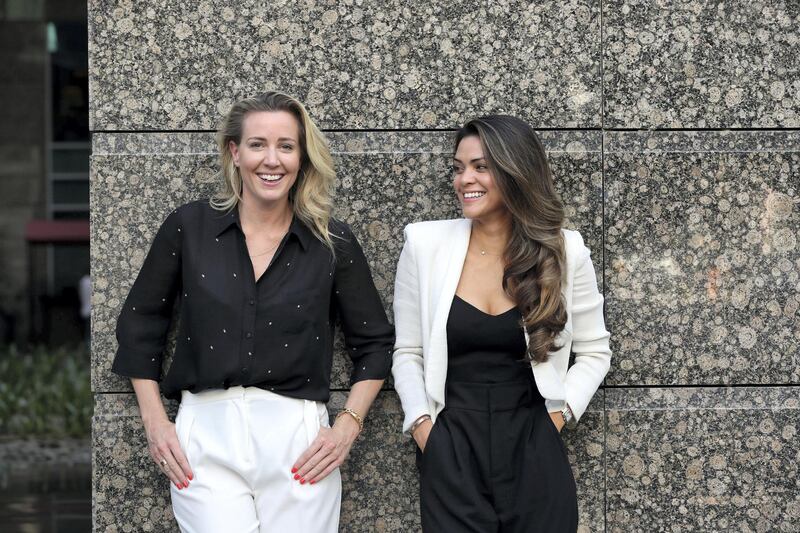A real hub of entrepreneurship is being built in the UAE, says angel investor and advisor to high-growth start-ups Assia Grazioli-Venier.
Ms Grazioli-Venier, who is based in Los Angeles, is a partner and co-founder of Muse Capital, an early-stage investment fund that focuses on consumer-facing technologies, from FinTech to health care and entertainment.
She and business partner Rachel Springate are looking to invest in the Middle East after their first visit to Dubai late last year for Naseba Global WIL Economic Forum.
“There is a lot of positive, high-rise investment activity happening in the Middle East, especially in Dubai,” she says. “We are slowly seeing the rise of a real hub in the UAE.”
There has been a “large influx” of media and technology entrepreneurs to Dubai after the failure of some Middle Eastern companies elsewhere due to the Arab Spring, she says.
“There is definitely a growing appetite for entrepreneurship, especially among the younger generations,” she adds.
The recent success of e-commerce companies such as Souq.com has “increased international attention” to Mena start-ups, she believes, and initiatives, accelerators and partnerships for “young thinkers” are being provided by both the Government and corporations.
There is still a “deficit” of venture capitalists in the region but this, too, is changing, says Ms Grazioli-Venier. The older generation is used to “very fast returns through the more traditional vehicles of private equity and real estate” - but venture capital (VC) is a “completely different beast”, with an average five- to seven-year return and a slower deployment of capital.
Older, established investors will need to change some of their strategies, while education is also needed as to why VC is “also a viable investment vehicle”. But, she says, “smart money is trickling in” and, in addition to “seasoned investors” - such as Emirati Mohamed Alabbar - founder of e-commerce site noon.com, who bid against Amazon for Souq.com - the millennial children of wealthy families are starting to “aggressively tap into the digital market”.
Learning from established start-up markets such as Silicon Valley is “crucial” for the success of regional entrepreneurs, Ms Grazioli-Venier adds, pointing to the launch of a Bahrain base for the Californian 500 Startups, which has worked with cloud communications platform Twilio and social marketing software developer Wildfire, which was bought for Dh1.3 billion by Google.
Born in Rome and raised in the US, Ms Grazioli-Venier, 38, has lived in New York City, London, Milan and Stockholm. She has been on the board of directors of Italy's Juventus Football Club since 2012 - the first female and youngest board member in the club’s 120-year history – and was also an adviser to music streaming service Spotify for six years.
Ms Grazioli-Venier met business partner Rachel Springate when Ms Springate came in to pitch to Spotify four years ago. They became close friends and Ms Springate helped to nurse Ms Grazioli-Venier through late-stage breast cancer and a double mastectomy two years ago. By November they had come up with the idea for Muse. “Out of excruciating pain came extraordinary creativity,” Ms Grazioli-Venier says.
Now Muse wants to raise parts of its newest fund in the UAE, Ms Grazioli-Venier says, and she feels that there is, too, a “hunger” here in the UAE to invest in the US. Muse has also been asked to consult and help regional businesses looking to expand beyond the Middle East.
“We see this as an opportunity to help the region develop, whilst getting the region connected with some of the unicorns popping up at a rapid pace in the States,” she says. “Cross-pollination is key to growth in the region.”
One of the companies Muse has worked with is Qordoba, creators of the first machine-learning solution for localisation, which started in Dubai and is now having “huge success” in San Francisco, having raised $5 million in Series A funding last year.
“They are an example of a company that has left the region to build their product,” she says, “but eventually companies such as these will base themselves at home in the UAE.”
Of successful local start-ups such as Fetchr, Souqalmal.com, Bayzat, Careem and Laundrybox, she says. “We think they have a lot of potential to expand to other emerging markets and the success they’ve achieved already is extremely promising.”
Muse has invested in 14 companies so far. The latest is San Francisco-based Firefly, an out-of-home marketing company that puts digital marketing billboards on top of ride-sharing vehicles such as Uber, which show geo-targeted local advertising based on driver routes and location.
Despite being run by two women, Muse believes in all forms of diversity, says Ms Grazioli-Venier, and will not invest, for instance, in women-only companies. “Performance increases with diverse teams so we only invest in companies that have a diverse management team and workforce,” she says.
But the pair do insist on there being women in “high leadership positions” in the companies in which they invest. “Investing in women-led businesses is one way to empower women, in the short term, but it is not the right way to empower long term,” she says.
“The playing field is not level, but we cannot change that by marginalising the genders even further. It is diversity that breeds access and success.”






